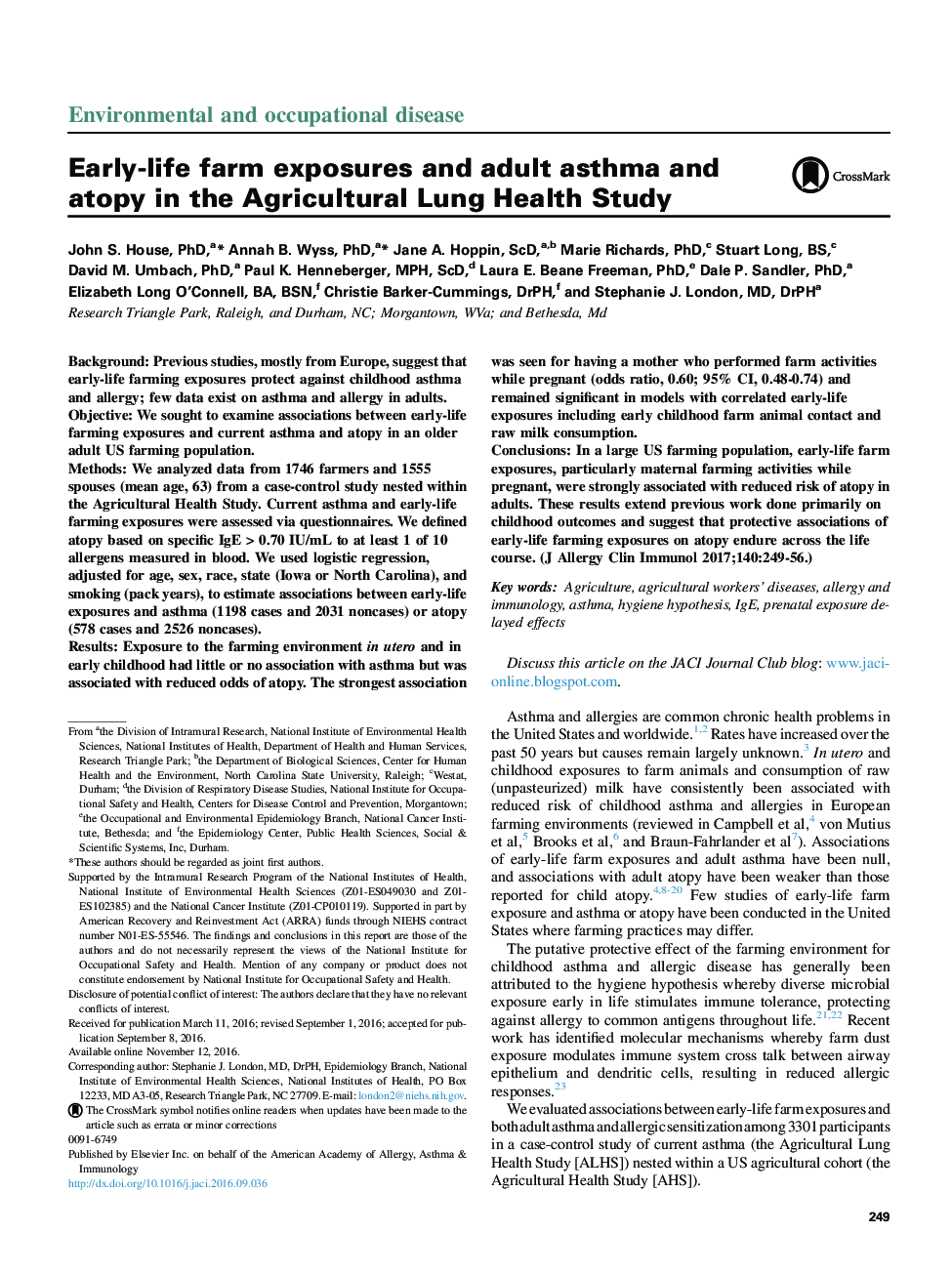| Article ID | Journal | Published Year | Pages | File Type |
|---|---|---|---|---|
| 5646480 | Journal of Allergy and Clinical Immunology | 2017 | 22 Pages |
BackgroundPrevious studies, mostly from Europe, suggest that early-life farming exposures protect against childhood asthma and allergy; few data exist on asthma and allergy in adults.ObjectiveWe sought to examine associations between early-life farming exposures and current asthma and atopy in an older adult US farming population.MethodsWe analyzed data from 1746 farmers and 1555 spouses (mean age, 63) from a case-control study nested within the Agricultural Health Study. Current asthma and early-life farming exposures were assessed via questionnaires. We defined atopy based on specific IgEÂ > 0.70 IU/mL to at least 1 of 10 allergens measured in blood. We used logistic regression, adjusted for age, sex, race, state (Iowa or North Carolina), and smoking (pack years), to estimate associations between early-life exposures and asthma (1198 cases and 2031 noncases) or atopy (578 cases and 2526 noncases).ResultsExposure to the farming environment in utero and in early childhood had little or no association with asthma but was associated with reduced odds of atopy. The strongest association was seen for having a mother who performed farm activities while pregnant (odds ratio, 0.60; 95% CI, 0.48-0.74) and remained significant in models with correlated early-life exposures including early childhood farm animal contact and raw milk consumption.ConclusionsIn a large US farming population, early-life farm exposures, particularly maternal farming activities while pregnant, were strongly associated with reduced risk of atopy in adults. These results extend previous work done primarily on childhood outcomes and suggest that protective associations of early-life farming exposures on atopy endure across the life course.
